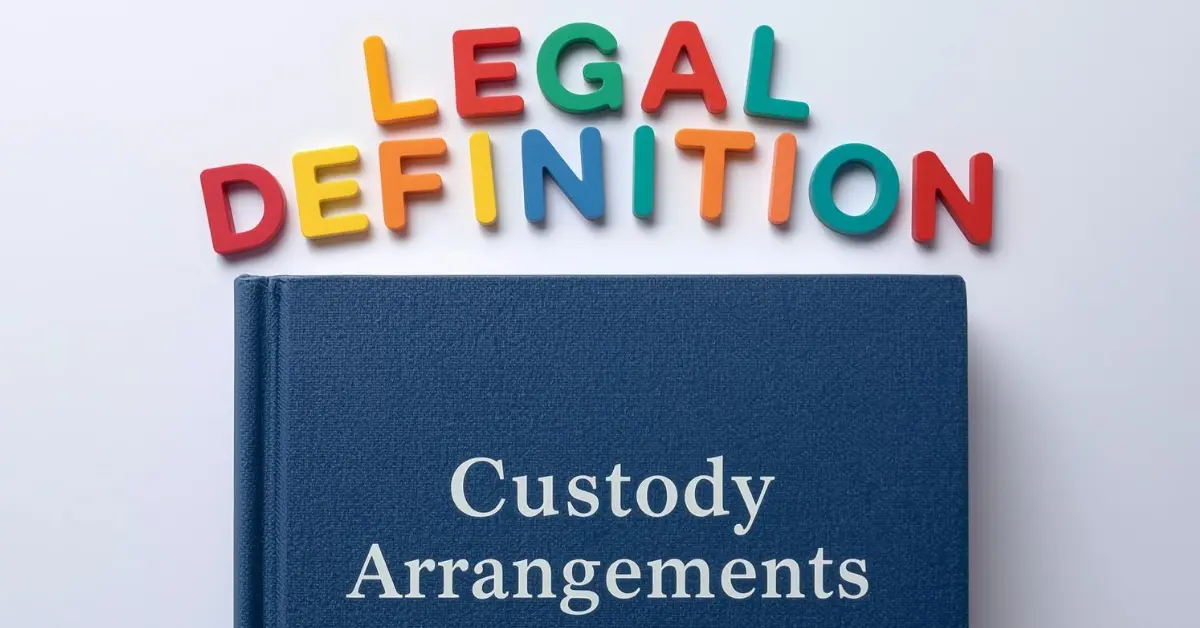Family law is a specialized legal field that encompasses cases related to divorce, child custody, spousal support, and other domestic matters. Family lawyers in North Carolina provide essential services by representing individuals navigating complex legal processes in family courts.
However, understanding the costs associated with hiring a family lawyer is crucial, as fees can significantly impact individuals dealing with already challenging situations.
Understanding family lawyer costs allows individuals to prepare financially for legal expenses and better evaluate the services required for their case.
For instance, divorce proceedings and child custody disputes often involve substantial legal fees, while simpler cases may incur minimal costs. Many factors influence these costs, and each family lawyer in North Carolina may have unique billing practices.
Factors Influencing Family Lawyer Costs in North Carolina
The cost of hiring a family lawyer in North Carolina varies widely due to several influencing factors. Here’s a breakdown of these primary considerations:
Complexity of the Case
Family law cases range from straightforward to highly complex, and the case’s intricacy directly affects the lawyer’s fees. Cases involving child custody and asset division often demand extensive legal analysis, documentation, and court time, all of which drive up costs.
Conversely, simpler cases, such as uncontested divorces, require less time and are often less expensive.
Lawyer’s Experience and Reputation
Family lawyers with more years of experience or a high success rate in challenging cases tend to charge higher fees. Attorneys known for handling high-stakes cases or those specializing in unique family law matters may command premium rates due to their specialized knowledge.
Although choosing a reputable lawyer might incur higher upfront costs, their expertise can lead to favorable outcomes in complex cases, potentially saving clients time and money in the long run.
Location and Practice Size
The lawyer’s location can also impact costs. Lawyers in urban areas, where the cost of living is higher, often have higher fees compared to those in rural regions.
Additionally, whether the lawyer works independently, in a small firm, or as part of a larger practice can affect pricing. Solo practitioners may offer more affordable rates, whereas lawyers in larger firms often charge more due to overhead costs.
Billing Structure (Hourly Rates vs. Flat Fees)
Most family lawyers in North Carolina bill clients using one of three structures: hourly rates, retainer fees, or flat fees. The hourly rate structure is common, especially in cases where the legal work’s extent cannot be predetermined.
Retainer fees involve an upfront payment that covers a certain number of hours, while flat fees are typically applied to specific services, such as uncontested divorce cases. Understanding each structure can help clients plan for anticipated legal expenses.

Average Cost of Family Lawyers in North Carolina
The costs of family lawyers in North Carolina vary based on several factors, but general estimates provide a framework for what clients might expect.
1. Hourly Rates
The average hourly rate for family lawyers in North Carolina is around $275 per hour, though this figure can vary based on the lawyer’s experience and the case’s complexity. Some lawyers with extensive expertise may charge closer to $300-$400 per hour, while less experienced attorneys may offer rates as low as $200 per hour.
2. Retainer Fees
Retainer fees often range from $3,000 to $5,000. This amount is an upfront payment that ensures the lawyer’s availability for the case and covers initial legal work. Once the retainer is exhausted, clients may need to replenish it, depending on the case’s progress and complexity.
3. Flat Fees
Certain family law services are offered at flat fees, especially for straightforward cases like uncontested divorces. For example, a flat fee might be applied to legal services where minimal court appearances are expected. This fee structure provides cost predictability and can be an attractive option for clients with simpler cases.
Additional Costs Associated with Family Law Cases
When hiring a family lawyer in North Carolina, it’s important to be aware of not only the lawyer’s fee but also the additional costs that may arise during the course of your case. Depending on the intricacy of the case, the nature of your legal difficulties, and the lawyer’s billing schedule, these fees can vary greatly.
Court Filing Fees
Court filing fees are one of the most common costs you will incur when dealing with family law cases. These fees are required to initiate your case in court, and the amount depends on the type of case and the county in which you’re filing.
In North Carolina, these fees can range from $200 to $500 for common family law cases like divorce or child custody. Specific fees can vary by jurisdiction, so it’s always important to confirm the exact cost with the local court.
Court fees cover the basic processing of your case, such as filing the initial petition or complaint, and may include additional costs for motions, hearings, or other legal proceedings that require official court action.
Mediation and Expert Witness Fees
In some family law cases, mediation or expert witness services may be required. Mediation is a common alternative to courtroom litigation, especially in divorce and child custody cases, as it allows both parties to negotiate their issues with a neutral third-party mediator.
The cost of mediation usually varies from $100 to $300 per hour, contingent on the intricacy of the case and the mediator’s experience.
If your case requires expert witnesses—such as psychologists in child custody cases or financial experts in divorce settlements—these services can be expensive. Expert witnesses may charge anywhere from $200 to $500 per hour, depending on their specialization.
Keep in mind that expert witnesses are often hired to provide objective testimony that can help your case, but these costs can quickly add up.
Administrative and Document Fees
Family law cases often involve extensive documentation, including the preparation and filing of various forms and legal documents.
The costs for these administrative tasks can add up, particularly if your case involves multiple court filings, subpoenas, or other specialized documents. Administrative fees typically range from $50 to $200, depending on the complexity of the documents involved.
Some law firms charge separate fees for document preparation, postage, and administrative support. While these fees are often less than attorney’s hourly rates, they can still represent a significant portion of your total legal expenses.

Tips for Managing Family Lawyer Costs
Hiring a family lawyer can be a substantial financial commitment, but there are several strategies you can use to manage these costs effectively.
By understanding your options and being proactive about your legal expenses, you can ensure that you are getting the best value for your money while still receiving high-quality legal representation.
Choosing the Right Lawyer
One of the most important decisions you will make in managing family law costs is choosing the right lawyer. It’s essential to select a lawyer whose expertise and billing structure align with your needs and budget.
Family lawyers in North Carolina may charge by the hour, with average hourly rates ranging from $250 to $350 per hour, depending on their experience and the complexity of your case.
Before hiring a lawyer, ask about their fee structure and make sure you understand how you will be billed.
Some family lawyers offer flat fees for certain types of cases, such as uncontested divorce, which can help you avoid unpredictable costs. Additionally, some lawyers may offer payment plans or flexible fee arrangements to help spread the cost of legal services over time.
Negotiating Payment Plans or Reduced Fees
If you’re concerned about the cost of hiring a family lawyer, don’t hesitate to negotiate. Many family lawyers are open to working with clients to set up payment plans or reduce their fees, particularly if you are facing financial hardship.
It’s worth discussing your budget and asking if there is any room for flexibility in their fee structure.
Some lawyers may offer reduced rates for clients who can pay upfront, while others may allow you to make payments over time. Keep in mind that negotiating payment terms upfront is important, as it will help you avoid unexpected financial strain later on.
Utilizing Free or Low-Cost Resources
If you’re struggling to afford the cost of hiring a family lawyer, there are several resources available in North Carolina that can provide free or low-cost legal assistance.
Legal aid organizations offer free legal representation to low-income individuals, and many counties in North Carolina have local family law assistance programs that can help you navigate the legal system without breaking the bank.
Additionally, some law firms offer pro bono services for clients who meet specific financial eligibility requirements. Be sure to inquire about any available options for free or low-cost legal services, and don’t hesitate to take advantage of these resources if you qualify.
Conclusion
Understanding the costs associated with hiring a family lawyer in North Carolina is an essential part of preparing for your case. From court filing fees to mediation and expert witness costs, there are several factors that can influence the total expense of your legal representation.
However, by choosing the right lawyer, negotiating payment plans, and utilizing available resources like legal aid, you can help manage these costs effectively. Remember, every family law case is unique, and the costs will vary depending on the specifics of your situation.
It’s important to do thorough research, discuss fees with potential lawyers upfront, and plan accordingly to avoid unexpected expenses. With the right approach, you can navigate the legal system without sacrificing your financial stability.




